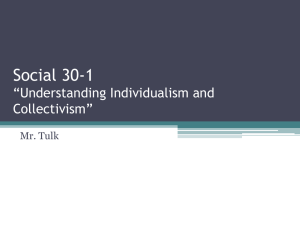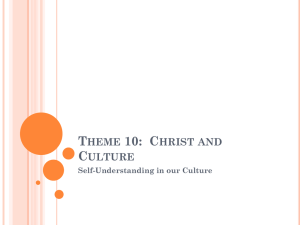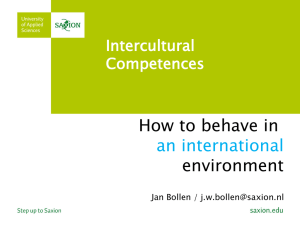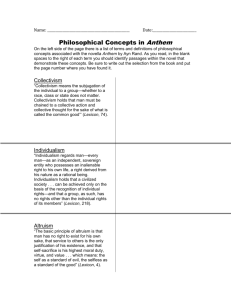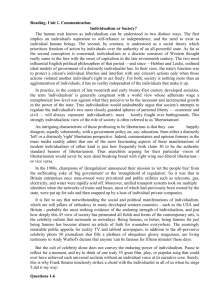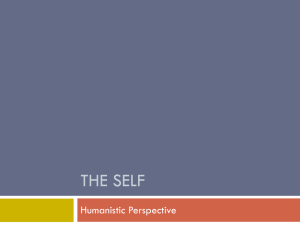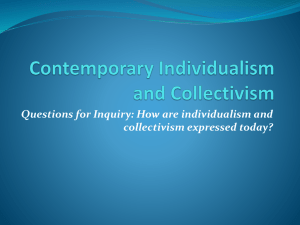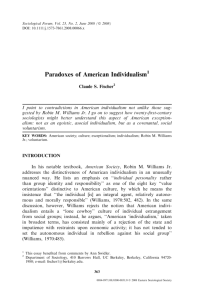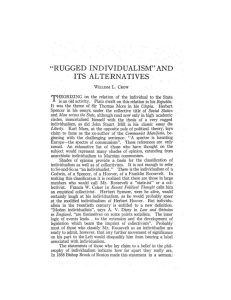The concept of American individualism and its linguistic
advertisement
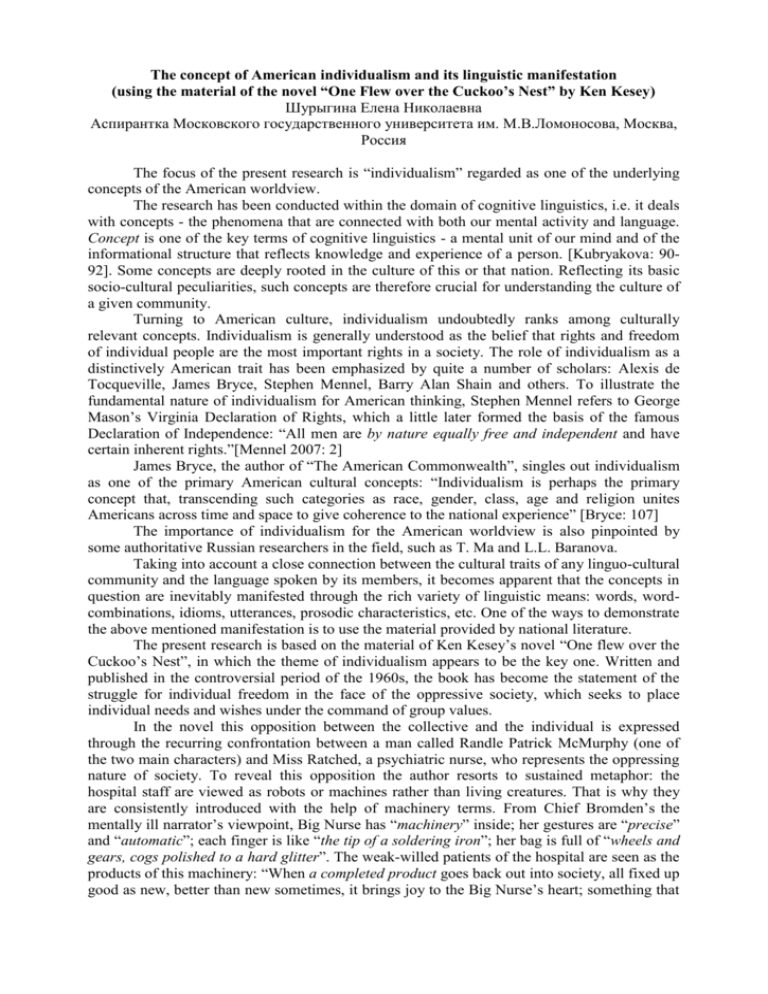
The concept of American individualism and its linguistic manifestation (using the material of the novel “One Flew over the Cuckoo’s Nest” by Ken Kesey) Шурыгина Елена Николаевна Аспирантка Московского государственного университета им. М.В.Ломоносова, Москва, Россия The focus of the present research is “individualism” regarded as one of the underlying concepts of the American worldview. The research has been conducted within the domain of cognitive linguistics, i.e. it deals with concepts - the phenomena that are connected with both our mental activity and language. Concept is one of the key terms of cognitive linguistics - a mental unit of our mind and of the informational structure that reflects knowledge and experience of a person. [Kubryakova: 9092]. Some concepts are deeply rooted in the culture of this or that nation. Reflecting its basic socio-cultural peculiarities, such concepts are therefore crucial for understanding the culture of a given community. Turning to American culture, individualism undoubtedly ranks among culturally relevant concepts. Individualism is generally understood as the belief that rights and freedom of individual people are the most important rights in a society. The role of individualism as a distinctively American trait has been emphasized by quite a number of scholars: Alexis de Tocqueville, James Bryce, Stephen Mennel, Barry Alan Shain and others. To illustrate the fundamental nature of individualism for American thinking, Stephen Mennel refers to George Mason’s Virginia Declaration of Rights, which a little later formed the basis of the famous Declaration of Independence: “All men are by nature equally free and independent and have certain inherent rights.”[Mennel 2007: 2] James Bryce, the author of “The American Commonwealth”, singles out individualism as one of the primary American cultural concepts: “Individualism is perhaps the primary concept that, transcending such categories as race, gender, class, age and religion unites Americans across time and space to give coherence to the national experience” [Bryce: 107] The importance of individualism for the American worldview is also pinpointed by some authoritative Russian researchers in the field, such as T. Ma and L.L. Baranova. Taking into account a close connection between the cultural traits of any linguo-cultural community and the language spoken by its members, it becomes apparent that the concepts in question are inevitably manifested through the rich variety of linguistic means: words, wordcombinations, idioms, utterances, prosodic characteristics, etc. One of the ways to demonstrate the above mentioned manifestation is to use the material provided by national literature. The present research is based on the material of Ken Kesey’s novel “One flew over the Cuckoo’s Nest”, in which the theme of individualism appears to be the key one. Written and published in the controversial period of the 1960s, the book has become the statement of the struggle for individual freedom in the face of the oppressive society, which seeks to place individual needs and wishes under the command of group values. In the novel this opposition between the collective and the individual is expressed through the recurring confrontation between a man called Randle Patrick McMurphy (one of the two main characters) and Miss Ratched, a psychiatric nurse, who represents the oppressing nature of society. To reveal this opposition the author resorts to sustained metaphor: the hospital staff are viewed as robots or machines rather than living creatures. That is why they are consistently introduced with the help of machinery terms. From Chief Bromden’s the mentally ill narrator’s viewpoint, Big Nurse has “machinery” inside; her gestures are “precise” and “automatic”; each finger is like “the tip of a soldering iron”; her bag is full of “wheels and gears, cogs polished to a hard glitter”. The weak-willed patients of the hospital are seen as the products of this machinery: “When a completed product goes back out into society, all fixed up good as new, better than new sometimes, it brings joy to the Big Nurse’s heart; something that came in all twisted different is now a functioning, adjusted component, a credit to the whole outfit and a marvel to behold.” To conclude, the thorough analysis of the text of Ken Kesey’s novel, as well as of some prominent theoretical works on the subject, shows that individualism is one of the most significant American linguo-cultural concepts. Its cultural characteristics to a large extent determine the peculiarities of its linguistic manifestation in the given literary text. Bibliography: 1. Баранова Л.Л. Концепт «Американская мечта»: его структура и реализация в языковой деятельности людей. Когнитивная лингвистика: новые проблемы познания : сб. науч. тр. : Вып. 5/ М., 2007 2. Кубрякова Е.С. Словарь когнитивных терминов. М, 1996 3. Ма Т.Ю. Национальное самосознание в контексте языка и культуры: (На материале амер. варианта англ.яз.):Дис. ... канд. филол. наук. М., 2001 4. Bryce James James Bryce. The American Commonwealth. New York, 1916 5. Mennel Stephen. American Individualism and its Consequences for the World (including the credit crunch): http://www.stephenmennell.eu
